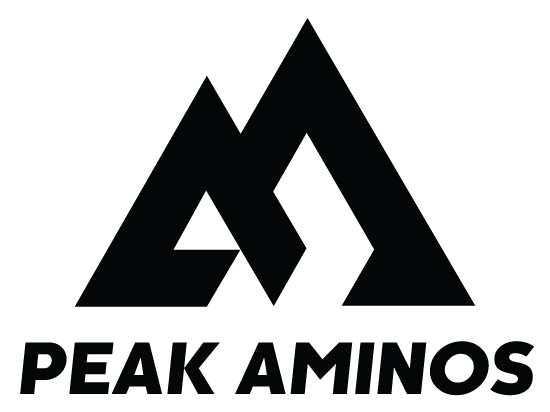
What Is Betaine Anhydrous (Trimethylglycine)?
Betaine anhydrous, also known simply as betaine or trimethylglycine (TMG), is a naturally occurring compound found in various foods, including beets, spinach, and grains. Chemically, it is a derivative of the amino acid glycine. Betaine anhydrous is commonly used in sports nutrition and bodybuilding supplements, as well as in supplements targeting liver health and cardiovascular health.
What are the potential benefits of taking betaine anhydrous?
Taking betaine anhydrous can offer some potential benefits including:
- Increased exercise performance: Betaine anhydrous has been shown to enhance exercise performance by increasing power output, strength, and endurance. This can be beneficial for athletes and individuals engaged in resistance or high-intensity training.*
- Muscle growth & recovery: Betaine anhydrous may support muscle growth by promoting protein synthesis and reducing muscle breakdown. It can also aid in faster recovery from intense workouts, allowing for more frequent training sessions.*
What are some potential downsides of taking betaine anhydrous?
Taking betaine anhydrous may have some potential downsides for individuals including:
- Gastrointestinal issues: Some individuals may experience gastrointestinal discomfort, such as bloating, diarrhea, or stomach cramps, when taking betaine anhydrous supplements. These side effects are usually mild and can often be minimized by taking betaine with plenty of water and/or with meals.
- Individual variability: Not everyone responds to betaine anhydrous supplementation in the same way. While many individuals experience benefits, some may not see significant improvements.
Betaine anhydrous, also known simply as betaine or trimethylglycine (TMG), is a naturally occurring compound found in various foods, including beets, spinach, and grains. Chemically, it is a derivative of the amino acid glycine. Betaine anhydrous is commonly used in sports nutrition and bodybuilding supplements, as well as in supplements targeting liver health and cardiovascular health.
What are the potential benefits of taking betaine anhydrous?
Taking betaine anhydrous can offer some potential benefits including:
- Increased exercise performance: Betaine anhydrous has been shown to enhance exercise performance by increasing power output, strength, and endurance. This can be beneficial for athletes and individuals engaged in resistance or high-intensity training.*
- Muscle growth & recovery: Betaine anhydrous may support muscle growth by promoting protein synthesis and reducing muscle breakdown. It can also aid in faster recovery from intense workouts, allowing for more frequent training sessions.*
What are some potential downsides of taking betaine anhydrous?
Taking betaine anhydrous may have some potential downsides for individuals including:
- Gastrointestinal issues: Some individuals may experience gastrointestinal discomfort, such as bloating, diarrhea, or stomach cramps, when taking betaine anhydrous supplements. These side effects are usually mild and can often be minimized by taking betaine with plenty of water and/or with meals.
- Individual variability: Not everyone responds to betaine anhydrous supplementation in the same way. While many individuals experience benefits, some may not see significant improvements.
Betaine anhydrous, also known simply as betaine or trimethylglycine (TMG), is a naturally occurring compound found in various foods, including beets, spinach, and grains. Chemically, it is a derivative of the amino acid glycine. Betaine anhydrous is commonly used in sports nutrition and bodybuilding supplements, as well as in supplements targeting liver health and cardiovascular health.
What are the potential benefits of taking betaine anhydrous?
Taking betaine anhydrous can offer some potential benefits including:
- Increased exercise performance: Betaine anhydrous has been shown to enhance exercise performance by increasing power output, strength, and endurance. This can be beneficial for athletes and individuals engaged in resistance or high-intensity training.*
- Muscle growth & recovery: Betaine anhydrous may support muscle growth by promoting protein synthesis and reducing muscle breakdown. It can also aid in faster recovery from intense workouts, allowing for more frequent training sessions.*
What are some potential downsides of taking betaine anhydrous?
Taking betaine anhydrous may have some potential downsides for individuals including:
- Gastrointestinal issues: Some individuals may experience gastrointestinal discomfort, such as bloating, diarrhea, or stomach cramps, when taking betaine anhydrous supplements. These side effects are usually mild and can often be minimized by taking betaine with plenty of water and/or with meals.
- Individual variability: Not everyone responds to betaine anhydrous supplementation in the same way. While many individuals experience benefits, some may not see significant improvements.

What Is Betaine Anhydrous (Trimethylglycine)?
Betaine anhydrous, also known simply as betaine or trimethylglycine (TMG), is a naturally occurring compound found in various foods, including beets, spinach, and grains. Chemically, it is a derivative of the amino acid glycine. Betaine anhydrous is commonly used in sports nutrition and bodybuilding supplements, as well as in supplements targeting liver health and cardiovascular health.
What are the potential benefits of taking betaine anhydrous?
Taking betaine anhydrous can offer some potential benefits including:
- Increased exercise performance: Betaine anhydrous has been shown to enhance exercise performance by increasing power output, strength, and endurance. This can be beneficial for athletes and individuals engaged in resistance or high-intensity training.*
- Muscle growth & recovery: Betaine anhydrous may support muscle growth by promoting protein synthesis and reducing muscle breakdown. It can also aid in faster recovery from intense workouts, allowing for more frequent training sessions.*
What are some potential downsides of taking betaine anhydrous?
Taking betaine anhydrous may have some potential downsides for individuals including:
- Gastrointestinal issues: Some individuals may experience gastrointestinal discomfort, such as bloating, diarrhea, or stomach cramps, when taking betaine anhydrous supplements. These side effects are usually mild and can often be minimized by taking betaine with plenty of water and/or with meals.
- Individual variability: Not everyone responds to betaine anhydrous supplementation in the same way. While many individuals experience benefits, some may not see significant improvements.
Betaine anhydrous, also known simply as betaine or trimethylglycine (TMG), is a naturally occurring compound found in various foods, including beets, spinach, and grains. Chemically, it is a derivative of the amino acid glycine. Betaine anhydrous is commonly used in sports nutrition and bodybuilding supplements, as well as in supplements targeting liver health and cardiovascular health.
What are the potential benefits of taking betaine anhydrous?
Taking betaine anhydrous can offer some potential benefits including:
- Increased exercise performance: Betaine anhydrous has been shown to enhance exercise performance by increasing power output, strength, and endurance. This can be beneficial for athletes and individuals engaged in resistance or high-intensity training.*
- Muscle growth & recovery: Betaine anhydrous may support muscle growth by promoting protein synthesis and reducing muscle breakdown. It can also aid in faster recovery from intense workouts, allowing for more frequent training sessions.*
What are some potential downsides of taking betaine anhydrous?
Taking betaine anhydrous may have some potential downsides for individuals including:
- Gastrointestinal issues: Some individuals may experience gastrointestinal discomfort, such as bloating, diarrhea, or stomach cramps, when taking betaine anhydrous supplements. These side effects are usually mild and can often be minimized by taking betaine with plenty of water and/or with meals.
- Individual variability: Not everyone responds to betaine anhydrous supplementation in the same way. While many individuals experience benefits, some may not see significant improvements.
Betaine anhydrous, also known simply as betaine or trimethylglycine (TMG), is a naturally occurring compound found in various foods, including beets, spinach, and grains. Chemically, it is a derivative of the amino acid glycine. Betaine anhydrous is commonly used in sports nutrition and bodybuilding supplements, as well as in supplements targeting liver health and cardiovascular health.
What are the potential benefits of taking betaine anhydrous?
Taking betaine anhydrous can offer some potential benefits including:
- Increased exercise performance: Betaine anhydrous has been shown to enhance exercise performance by increasing power output, strength, and endurance. This can be beneficial for athletes and individuals engaged in resistance or high-intensity training.*
- Muscle growth & recovery: Betaine anhydrous may support muscle growth by promoting protein synthesis and reducing muscle breakdown. It can also aid in faster recovery from intense workouts, allowing for more frequent training sessions.*
What are some potential downsides of taking betaine anhydrous?
Taking betaine anhydrous may have some potential downsides for individuals including:
- Gastrointestinal issues: Some individuals may experience gastrointestinal discomfort, such as bloating, diarrhea, or stomach cramps, when taking betaine anhydrous supplements. These side effects are usually mild and can often be minimized by taking betaine with plenty of water and/or with meals.
- Individual variability: Not everyone responds to betaine anhydrous supplementation in the same way. While many individuals experience benefits, some may not see significant improvements.

What Is Betaine Anhydrous (Trimethylglycine)?
Betaine anhydrous, also known simply as betaine or trimethylglycine (TMG), is a naturally occurring compound found in various foods, including beets, spinach, and grains. Chemically, it is a derivative of the amino acid glycine. Betaine anhydrous is commonly used in sports nutrition and bodybuilding supplements, as well as in supplements targeting liver health and cardiovascular health.
What are the potential benefits of taking betaine anhydrous?
Taking betaine anhydrous can offer some potential benefits including:
- Increased exercise performance: Betaine anhydrous has been shown to enhance exercise performance by increasing power output, strength, and endurance. This can be beneficial for athletes and individuals engaged in resistance or high-intensity training.*
- Muscle growth & recovery: Betaine anhydrous may support muscle growth by promoting protein synthesis and reducing muscle breakdown. It can also aid in faster recovery from intense workouts, allowing for more frequent training sessions.*
What are some potential downsides of taking betaine anhydrous?
Taking betaine anhydrous may have some potential downsides for individuals including:
- Gastrointestinal issues: Some individuals may experience gastrointestinal discomfort, such as bloating, diarrhea, or stomach cramps, when taking betaine anhydrous supplements. These side effects are usually mild and can often be minimized by taking betaine with plenty of water and/or with meals.
- Individual variability: Not everyone responds to betaine anhydrous supplementation in the same way. While many individuals experience benefits, some may not see significant improvements.
Betaine anhydrous, also known simply as betaine or trimethylglycine (TMG), is a naturally occurring compound found in various foods, including beets, spinach, and grains. Chemically, it is a derivative of the amino acid glycine. Betaine anhydrous is commonly used in sports nutrition and bodybuilding supplements, as well as in supplements targeting liver health and cardiovascular health.
What are the potential benefits of taking betaine anhydrous?
Taking betaine anhydrous can offer some potential benefits including:
- Increased exercise performance: Betaine anhydrous has been shown to enhance exercise performance by increasing power output, strength, and endurance. This can be beneficial for athletes and individuals engaged in resistance or high-intensity training.*
- Muscle growth & recovery: Betaine anhydrous may support muscle growth by promoting protein synthesis and reducing muscle breakdown. It can also aid in faster recovery from intense workouts, allowing for more frequent training sessions.*
What are some potential downsides of taking betaine anhydrous?
Taking betaine anhydrous may have some potential downsides for individuals including:
- Gastrointestinal issues: Some individuals may experience gastrointestinal discomfort, such as bloating, diarrhea, or stomach cramps, when taking betaine anhydrous supplements. These side effects are usually mild and can often be minimized by taking betaine with plenty of water and/or with meals.
- Individual variability: Not everyone responds to betaine anhydrous supplementation in the same way. While many individuals experience benefits, some may not see significant improvements.
Betaine anhydrous, also known simply as betaine or trimethylglycine (TMG), is a naturally occurring compound found in various foods, including beets, spinach, and grains. Chemically, it is a derivative of the amino acid glycine. Betaine anhydrous is commonly used in sports nutrition and bodybuilding supplements, as well as in supplements targeting liver health and cardiovascular health.
What are the potential benefits of taking betaine anhydrous?
Taking betaine anhydrous can offer some potential benefits including:
- Increased exercise performance: Betaine anhydrous has been shown to enhance exercise performance by increasing power output, strength, and endurance. This can be beneficial for athletes and individuals engaged in resistance or high-intensity training.*
- Muscle growth & recovery: Betaine anhydrous may support muscle growth by promoting protein synthesis and reducing muscle breakdown. It can also aid in faster recovery from intense workouts, allowing for more frequent training sessions.*
What are some potential downsides of taking betaine anhydrous?
Taking betaine anhydrous may have some potential downsides for individuals including:
- Gastrointestinal issues: Some individuals may experience gastrointestinal discomfort, such as bloating, diarrhea, or stomach cramps, when taking betaine anhydrous supplements. These side effects are usually mild and can often be minimized by taking betaine with plenty of water and/or with meals.
- Individual variability: Not everyone responds to betaine anhydrous supplementation in the same way. While many individuals experience benefits, some may not see significant improvements.

